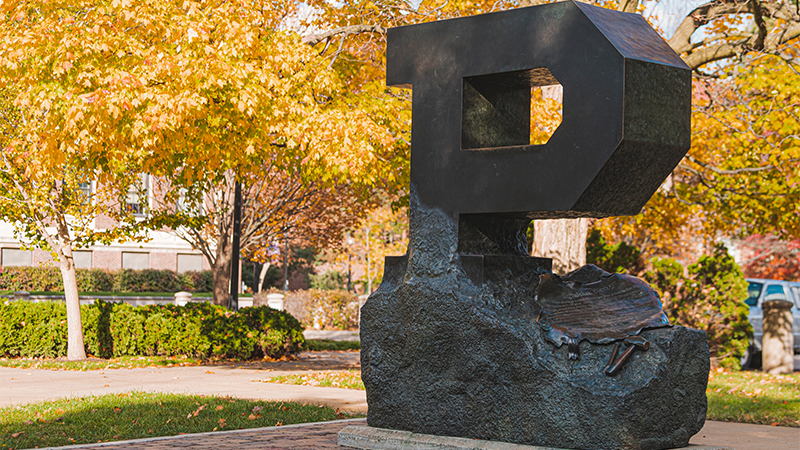
WEST LAFAYETTE, IN - When it comes to improving human gut health, approaches and the success of these approaches are based largely on an individual's gut ecosystem: the bacteria present, its diversity and other factors. Therefore, trying to improve gut health through application of prebiotics or probiotics can have wildly variable results based on gut flora composition.
Bruce Hamaker, director of the Whistler Center for Carbohydrate Research and Distinguished Professor of Food Science, and Thaisa Moro Cantu-Jungles, his postdoctoral research associate, recently discovered a way to select prebiotic fibers that have the potential to provide improvement of gut health where everyone would benefit.
Their study, conducted in vitro, showed an increase in butyrate-producing bacteria with a selected fiber using this new approach. Butyrate is a short-chain fatty acid that supports many of the body's essential functions from regulating the immune system to digestive health. In donors' gut flora where these bacteria were already present (nine out of 10), Cantu-Jungles and Hamaker observed a steady increase in butyrate-producing bacteria and butyrate with the introduction of this fiber.
"Here, we have targeted bacteria with a specific fiber, which we think is a significant advancement," Hamaker said. "We've learned about these types of bacteria and what they look for in a fiber. The gut has a few trillion bacteria and roughly a thousand different species. But there is an ecological structure in the gut, just like in the wilds. And just like in nature, it's a very competitive environment, so the high specificity of certain fibers is what helps target a precise part of this ecosystem."
The results of this research have implications for human health beyond digestion and gut health.
"There is an opportunity to go into the symbiotic industry with this research; that's where you ally a prebiotic with a probiotic. Usually it's not very specific when this is done, but with our discovery, we can be very specific. We can find out which fiber will boost which bacteria so they can be introduced together," Cantu-Jungles said. "Beyond this, we can use gut bacteria to enhance human health and perhaps even fight pathogens present in the gut."
This research suggests that other highly specific fibers, when introduced, will boost other beneficial bacteria in the gut in a consistent way, which could have far-reaching implications from the treatment of diseases linked to inflammation to colon diseases.
"Over the years, prebiotics and probiotics have been advertised as improving gut health, but the results are usually marginal," Hamaker said. "Now, with this research, there is a possibility to actually achieve the beneficial effects that have been advertised in nearly everyone and much more."
The paper that outlines these discoveries is currently available online and forthcoming in Volume 11, Issue 3 of the mBio journal.






